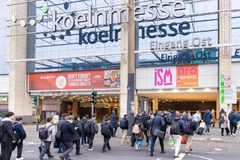Denali commercializes upcycled soil products through depackaging tech
US organic waste recycler Denali has introduced ReCirculate, a compost and organic potting soil product made using food waste from thousands of grocery stores. Starting January 2025, ReCirculate will be available for purchase in one cubic foot bags at participating retail locations across the US.
Through its depackaging technology and services, Denali diverts food waste from landfills and returns nutrients to agriculture and horticulture. The company sources waste from a network of thousands of grocers, food manufacturers, distributors and municipalities.
Food is the most common material in landfills, comprising an estimated 24% of municipal solid waste in the US, according to the EPA. “When food decomposes in landfills, it produces methane, a GHG that is 28 times more potent than carbon dioxide,” underscores Denali.

“At Denali, we’re on a mission to harness the potential of organic waste and ReCirculate is an example of how we can do that,” says Denali CEO, Todd Mathes.
“ReCirculate will leverage the nutrients in organic food waste to help build sustainable green spaces, landscaping, gardens, flower beds and more, all while powering a fully circular economy.”
“The product not only inspires consumers to choose sustainable potting soil and compost but allows retailers to monetize food waste otherwise sent to landfills, while effectively reducing their carbon footprint.”
Depackaging technology
Denali partners with retailers, from big national box stores to regional and independent businesses, to repurpose food waste using its depackaging technology that separates organic food waste from its packaging and transforms it into a clean stream of materials.
These materials are then converted into valuable products such as compost, soil, fertilizer and renewable energy.
“ReCirculate is an example of how Denali’s unique approach to fighting food waste continues to have a significant impact on climate change, and consumers can feel good knowing they are directly preventing food waste from reaching landfills, and using safe, effective and eco-friendly compost,” says Mathes.
In 2023, Denali recycled 14 billion pounds of organic material, which included 1.7 billion pounds of food waste.
Denali says its network of depackaging facilities can separate up to 97% of all trash from organic food waste, including expired food products, recalled items, food scraps and spoiled deli and bakery.
In other novel food waste advances, NTU Singapore scientists have created a biodegradable food wrap that changes color when the food it protects has spoiled. The wrap also has antibacterial properties that could protect the food from microbial contamination.












